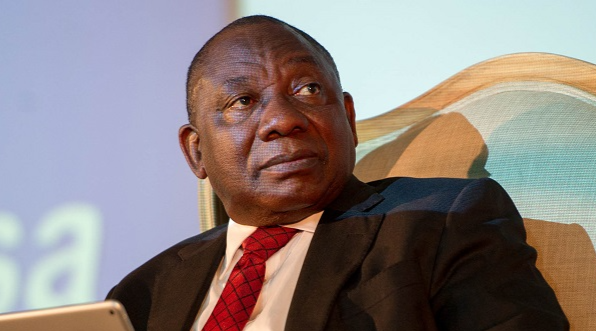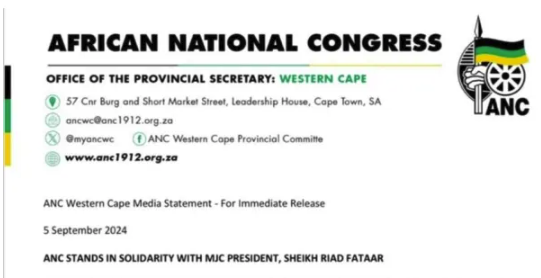News
Cyril Ramaphosa — The King of Hot Air Takes Centre Stage at the UN
President Cyril Ramaphosa proved himself to be a master of UN-speak while delivering his speech on the eve of the assumption by South Africa of the presidency of the G20

Former Research Director, The Brenthurst Foundation

Former Director, The Brenthurst Foundation

As hot air festivals go, none blows warmer than the annual United Nations General Assembly (UNGA), where leaders of countries of all stripes are afforded 15 minutes of fame. The high-level debate is supposed to be the apogee of a fortnight’s talkfest.
The 79th session of the UNGA opened on 10 September 2024, with the first day of the general debate starting on 24 September and concluding six days later.
The UNGA usually, however, serves only to remind of how little of what is promised is actually delivered. Not that this ever cools the cast of performers.
On a typical day “His Excellency Abdel-Fattah Al-Burhan Abdelrahman Al-Burhan, President of the Transitional Sovereign Council” of Sudan, has the same platform as Kenya’s President William Ruto or Malawi’s President Lazarus Chakwera.
Military autocrats and democrats share something peculiar – the mastery of the strange language of UN-speak, which commits one and all to the improvement of the planet in every possible way. It is a language constructed on the foundation laid by a deluge of papers, reports and action points which are, in turn, produced in an endless stream of meetings where all agree to make the world a better, more caring place.
As the bureaucrat-in-chief, UN secretary-general António Guterres, summed it up: “At every step, our organisation and our personnel will continue to stand in solidarity with the people of the world through these trying times, as we seek to forge a more peaceful, healthy, equal and prosperous future together.” Amen.
The whole world, from autocrats, dictators and the leaders of military juntas to democrats and human rights advocates all agree this is a wonderful mission, so low is its common denominator and so vague its commitments.
It is an environment purpose-built for those who thrive in talk shops, projections of self-righteousness and self-congratulation.
Enter South Africa’s president, Cyril Ramaphosa, stage left.
Delivering his speech on the eve of the assumption by South Africa of the presidency of the G20 – itself an offshoot of the UN with its own secretariat, meetings, goals, plans and objectives – Ramaphosa proved himself to be a master of UN-speak, leading as he does a state that has led the world for decades in the “policy rich, implementation poor” category.
He started by referencing the product of a giant talk-shop timed to coincide with the UN General Assembly, something called the Summit of the Future, which had adopted the Pact for the Future.
This pact, said Ramaphosa, “is a blueprint for a sustainable, just and peaceful global order for all peoples and nations”.
Consisting of no fewer than 56 “actions”, ranging from “the eradication of poverty” through to “a world free from nuclear weapons”, the Pact for the Future is a truly magnificent record of every possible platitude that could be uttered, each fleshed out without any basis for implementation in the full knowledge that nothing will be implemented.
The pact states: “Through the actions we take today, we resolve to set ourselves on that path, striving for a world that is safe, peaceful, just, equal, inclusive, sustainable and prosperous, a world in which well-being, security and dignity and a healthy planet are assured for all humanity.”
By “actions we take today”, the document is of course referring to the adoption of the document’s 56 action points, not any actual actions by any state to alter its behaviour.
The pact refers, of course, to the perennial demand for UN reform, which Ramaphosa described in these words: “The UN needs to be inclusive. It needs to represent current geopolitical relations and the prevailing international realities.”
But the pact is apparently not enough. A second document produced by the G20, the Call to Action on Global Governance Reform, has been wrought. Adopted at a meeting of foreign ministers, the document, said Ramaphosa, is “therefore timely and necessary”.
This document is relatively modest, having only 34 calls to action. Among them are this beauty, as fine an example of waffle as you are ever likely to encounter: “We commit to invigorate the General Assembly through transformative procedures and practices that recognise the authority and enhance the effectiveness and efficiency of the General Assembly, in line with the UN Charter, including in relation to meetings, reports and resolutions.”
Among the Call to Action’s requests is that there be “greater synergies and coherence with UN agencies, funds and programmes to better promote sustainable development in its three dimensions and to assist member states in achieving the Sustainable Development Goals (SDGs)”.

The Sustainable Development Goals are the mainspring of decades of hot air, consisting of 17 indisputably righteous objectives from “no poverty” to “climate action”. The authors did, however, commit a fundamental error. They broke with the first principle of waffle and gave deadlines for the achievement of the goals.
It goes without saying that, despite all the heartfelt commitments by states from dictatorships to democracies, the whole thing is a complete failure.
As Ramaphosa pointed out: “At the launch of the Special Edition of the Sustainable Development Goals Progress Report on 25 April 2023, the secretary-general drew attention to the gravity of the situation. Just 12% of the SDG targets are on track. Progress on 50% is weak and insufficient. On more than 30% of the SDGs we have stalled or gone into reverse.”
The countries that have performed best according to the 2024 report are Finland, Sweden, Denmark, Germany and France. These examples of success in a sea of failure ought to have merited a mention, but none was forthcoming.
As failures go, this is pretty grim. It exposes the UN as an institution wholly incapable of executing anything and that the many millions of tonnes of carbon expended on shuttling diplomats and presidents to and from the UN in New York has yielded next to absolutely nothing.
The UN is undoubtedly unfit for purpose as a world body, an out-of-touch talk shop incapable of getting important things done, save more meetings of course. But given that it is a mirror to governments and their leaders begs the question of whether the problem lies with the UN itself or the very people we expect to fix it and give it fresh direction.
All of this is, of course, about to change.
As Ramaphosa said: “South Africa has adopted as the theme for its G20 Presidency: ‘Solidarity, Equality and Sustainable Development’.
“We aim to mobilise the countries of the world towards taking practical steps that will resolve global challenges, while strengthening international cooperation within a rules-based system. In an interconnected world, the challenges faced by one nation affect all nations. Through solidarity we seek to advance a unified effort and mutual support among member nations.”
That ought to do it.

